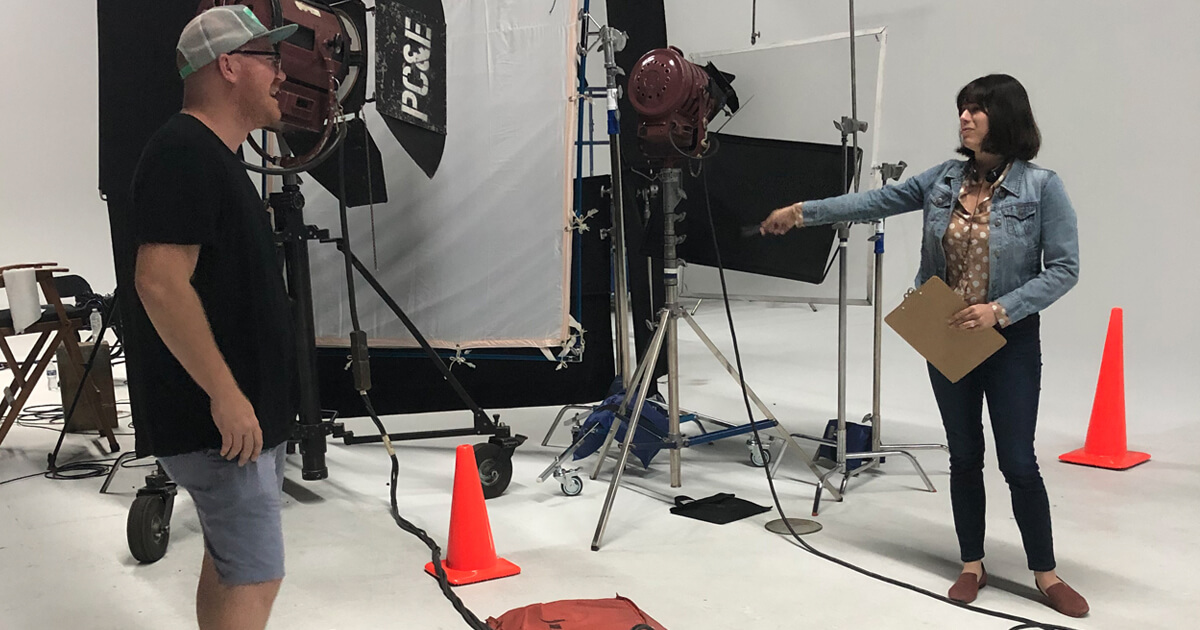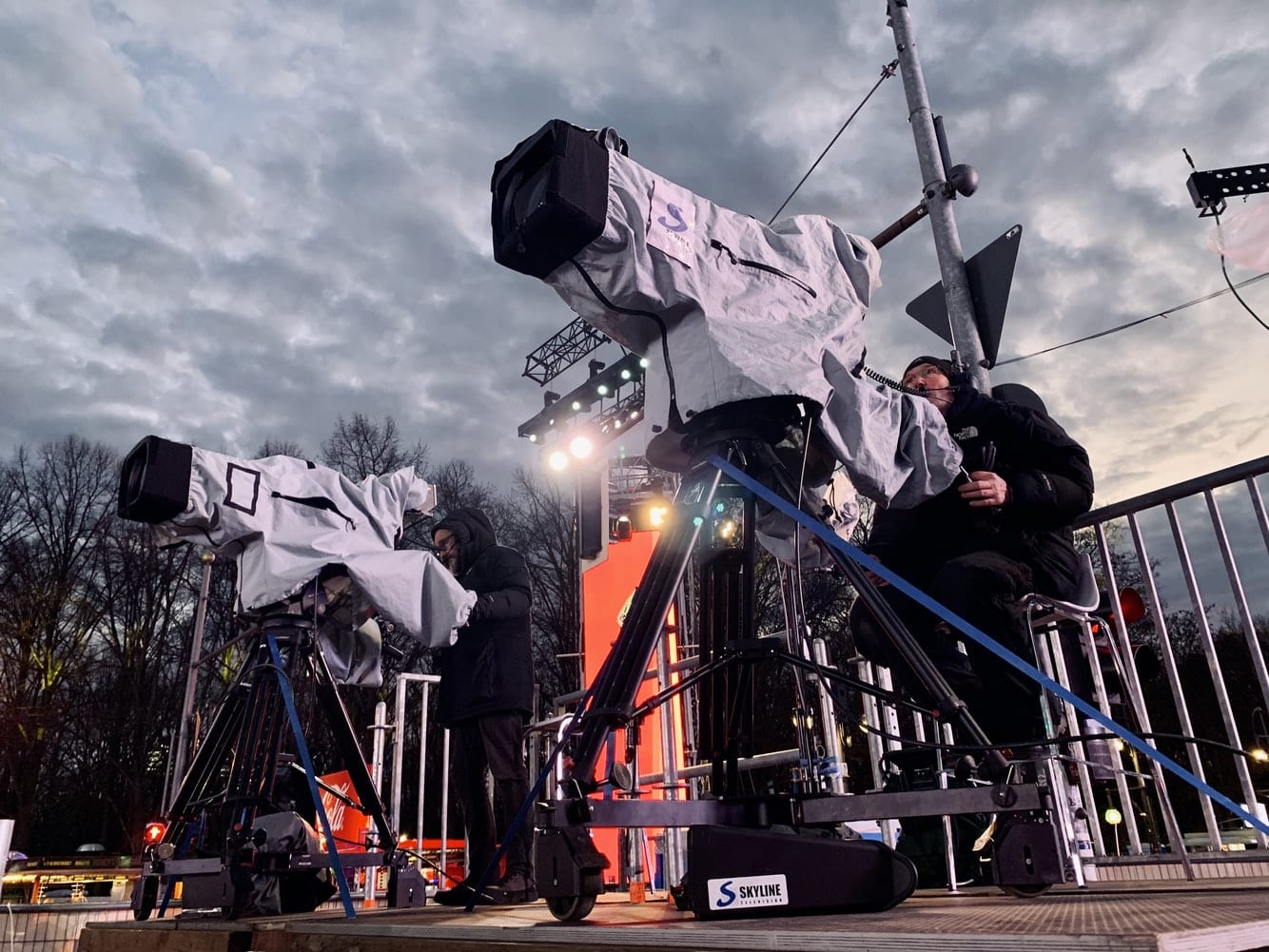Master your event’s logistics with event production charlotte
Wiki Article
Exactly How Event Production Functions: A Comprehensive Check Out the Process
Event production is a complicated and structured process that requires mindful preparation and implementation. It begins with establishing clear objectives and understanding the target audience. Each action, from budgeting to place choice, plays an important function in making sure success. As the process unfolds, numerous components need to line up perfectly. Yet, the nuances of this intricate procedure usually go undetected. What are the key phases that add to a memorable event?
The Preliminary Drawing Board
When starting on event production, cautious planning is vital to assure an effective end result. The initial planning stage works as the foundation for all subsequent efforts. During this phase, event producers must define the event's purpose and objectives clearly. Determining the target audience helps tailor the experience and messaging, assuring relevance and engagement.Producers must also consider the event format, whether it be in-person, digital, or crossbreed, as this will certainly affect different logistical aspects. Selecting a suitable day and location is crucial, as it affects availability and availability.Furthermore, setting up a reputable group is basic for splitting obligations and improving communication. Establishing a timeline with landmarks warranties all tasks are completed on time. This phase includes complete research study, including recognizing prospective challenges and devising approaches to reduce risks. Inevitably, a well-structured preliminary planning stage sets the tone for an effective event production trip.
Budgeting and Source Allotment
In event production, effective budgeting and source allocation are essential for success - event production charlotte. Establishing economic specifications establishes the foundation for all succeeding decisions, while source distribution approaches guarantee that every part of the event is properly sustained. Together, these aspects aid preserve control over expenses and optimize making use of available resourcesDeveloping Financial Parameters
Establishing monetary criteria is important to the success of any kind of event production, as it establishes the foundation for efficient budgeting and source allotment. This procedure starts with defining the general budget plan, which incorporates all aspects of the event, consisting of place costs, food catering, and advertising and marketing. By identifying offered funds, event organizers can focus on expenses and allocate resources appropriately. Furthermore, it is important to carry out complete market research to anticipate potential expenses and determine financing resources, such as sponsorships or ticket sales. Developing clear economic criteria additionally aids in risk management, allowing coordinators to allot contingency funds for unforeseen costs. Eventually, a distinct budget plan functions as a roadmap, assisting the event production group in the direction of attaining their objectives while preserving monetary control.Source Distribution Techniques
Efficient resource distribution techniques are important for optimizing the effect of an occasion while adhering to spending plan restraints. Effective event production calls for a careful technique to budgeting and resource allotment. Planners must focus on crucial aspects such as venue, event catering, and technology, ensuring that funds are assigned to areas that boost guest experience. A detailed budget must detail expected expenses and identify areas for potential expense savings, such as working out with suppliers or discovering sponsorship possibilities. In addition, tracking expenditures throughout the preparation process aids protect against overspending. By employing critical source distribution, event producers can supply a memorable experience while maintaining fiscal responsibility, inevitably adding to the general success of the event.Location Choice and Logistics
Choosing the appropriate location is necessary to the success of any kind of event, as it sets the stage for the total experience. Place selection entails reviewing various elements, including capability, ease of access, and area. Planners must consider the target audience and the nature of the event, ensuring the venue straightens with the event's goals.Logistics play a significant duty in this procedure, involving plans for seats, audiovisual tools, and catering services. A well-chosen place must assist in smooth circulation for attendees and staff, improving engagement.Additionally, evaluating potential venues for features like parking, restrooms, and emergency departures is essential for safety and security and benefit. The timeline for protecting the place is likewise crucial, as popular locations might book promptly - event production charlotte. Detailed preparation and timely implementation can ultimately contribute to a smooth event experience, making place selection and logistics basic elements of successful event production.
Imaginative Concept Advancement
While the place establishes the physical stage, imaginative idea development shapes the event's identity and narrative. This process begins with determining the event's function and target market, permitting event producers to formulate an engaging style that reverberates with participants. Brainstorming sessions usually consist of diverse viewpoints, cultivating ingenious ideas that line up with the event's goals.Once a theme is established, aesthetic components such as color combinations, signs, and decor are developed to improve the overall ambience. Storytelling techniques may additionally be incorporated to create an engaging journey for participants, assuring a memorable experience. Furthermore, factors to consider concerning home entertainment, tasks, and interactive components are aligned with the selected principle, reinforcing the motif throughout the event.Ultimately, reliable imaginative idea growth assurances that every facet of the event works cohesively, leaving an enduring perception on guests and meeting the event's goals. This fundamental work prepares for succeeding planning and execution stages.Working together With Suppliers and Suppliers
Effective event production rests on efficient partnership with suppliers and suppliers. Choosing trustworthy companions, working out contracts properly, and making certain prompt shipments are crucial action in this process. Each of these aspects contributes considerably to the overall success and smooth execution of an occasion.Selecting Reliable Allies
Just how can event organizers guarantee a smooth production experience? Selecting reliable companions is important in attaining this goal. Event planners need to carry about his out complete research to recognize vendors and providers with a tested record of quality. This consists of inspecting references, examining portfolios, and assessing consumer responses. Coordinators ought to prioritize partners that demonstrate expertise, prompt interaction, and a determination to collaborate. Structure solid relationships fosters count on and makes it possible for quick analytical during the event. Furthermore, it is advantageous to choose local suppliers that understand the place and local logistics. Ultimately, a successful event depends upon the synergy in between planners and their partners, guaranteeing that every aspect of production runs smoothly and successfully.Negotiating Agreements Efficiently
Effective settlement of agreements is a crucial action in the collaboration between event coordinators and their vendors and vendors. This process involves clear communication of assumptions, deliverables, and timelines. Organizers should perform thorough research study on market prices and industry standards to establish a baseline for negotiations. It is necessary to produce a collective atmosphere, urging open dialogue regarding terms, rates, and potential contingencies. Coordinators ought to additionally focus on recognizing the vendor's capabilities and restrictions to straighten their requirements effectively. Versatility can result in mutually advantageous agreements, promoting long-lasting partnerships. Crafting well-defined agreements that consist of particular performance metrics can assist guarantee liability, eventually causing successful event implementation and complete satisfaction for all parties involved.Making Sure Timely Shipments
Timely deliveries are crucial for the smooth implementation of any kind of event, needing attentive partnership between organizers and their vendors and distributors. Reliable communication is vital, as it helps develop clear expectations regarding distribution schedules, quantities, and specific demands. Planners usually produce in-depth timelines to lay out crucial milestones, making sure all celebrations stay straightened throughout the process. Routine check-ins with suppliers can aid identify prospective hold-ups early, enabling proactive remedies. In addition, constructing solid relationships with dependable vendors promotes count on and accountability, which can result in much better solution and prioritization. By prioritizing these joint efforts, coordinators can lessen interruptions, thus enhancing the total effectiveness of event production and making certain that all required materials and solutions show up as prepared.Marketing and Promo Approaches
While organizing an occasion, the success of marketing and promotion techniques can substantially influence presence and involvement. Efficient strategies frequently consist of a mix of electronic marketing, standard marketing, and grassroots outreach. Utilizing social media platforms permits real-time interaction and targeted marketing, reaching particular demographics properly. Email advertising and marketing campaigns can even more engage potential attendees with tailored material and reminders.Collaborations with influencers or market leaders can also enhance trustworthiness and broaden reach. Developing appealing material, such as official website video clips or blog sites, aids to produce buzz and endure passion leading up to the event. Additionally, leveraging early-bird price cuts and exclusive perks can incentivize ticket purchases.Promoting via typical networks, such as posters or regional media, stays relevant, especially in community-focused occasions. An extensive strategy that integrates numerous approaches assurances maximum exposure and interaction, inevitably adding to the event's success and the production of a memorable experience for participants.
On-Site Implementation and Monitoring
On-site implementation and monitoring are vital parts that figure out the overall success of an occasion. Reliable control throughout the event ensures that all elements straighten with the planned program. Event supervisors manage logistics, including vendor control, devices setup, and visitor solutions. Keeping track of timelines and attending to any unforeseen issues are basic for keeping a smooth experience.The team plays a substantial role, as trained personnel are responsible for various tasks such as enrollment, details circulation, and technical assistance. Communication among group members is critical; it promotes a joint environment and makes it possible for quick resolution of challenges.Additionally, security procedures need to be abided by, securing the well-being of all guests. Post-event analyses are also component of on-site monitoring, offering insights for future enhancements. By focusing on these elements, event producers can create remarkable experiences that fulfill or surpass guest expectations while attaining the event's objectives.Regularly Asked Concerns
How Do I Pick the Right Event Style?
Picking the appropriate event style involves thinking about the target market, event purpose, and location. Investigating existing patterns and collecting input from stakeholders can likewise motivate innovative concepts that reverberate and produce a remarkable experience.
What Are Common Mistakes in Event Production?
Typical blunders in event production frequently include inadequate preparation, inadequate communication amongst staff member, budget plan mismanagement, neglecting to think about the audience's requirements, and stopping working to carry out a complete post-event evaluation for future enhancements.Just How Can I Measure Event Success?
To measure event success, one can analyze participant complete satisfaction, involvement degrees, budget adherence, and post-event responses. Key efficiency indications, such as ticket sales a knockout post and social media interactions, also supply valuable understandings right into general effectiveness.What Should I Do if It Moistens the Event Day?
In the event of moisten the day, the organizer must apply backup plans, such as safeguarding outdoors tents or moving tasks inside your home. Interaction with participants about modifications is necessary to guarantee a smooth experience in spite of weather condition obstacles.Exactly How Can I Guarantee Attendee Engagement During the Event?

Report this wiki page